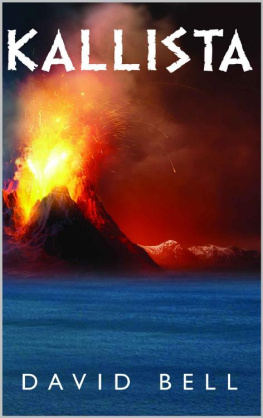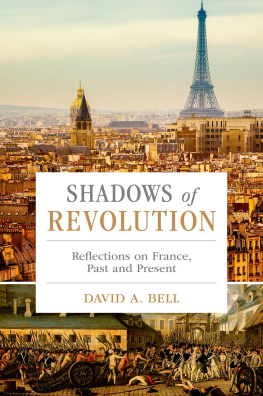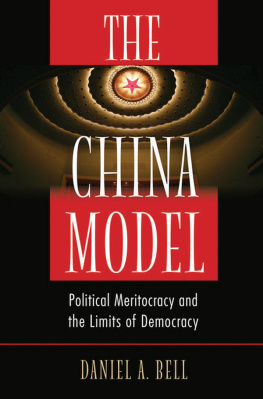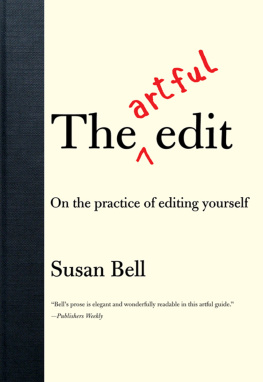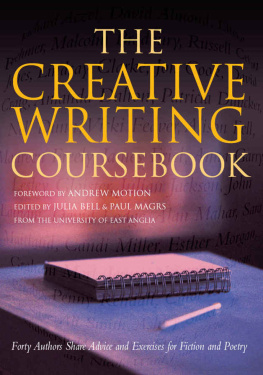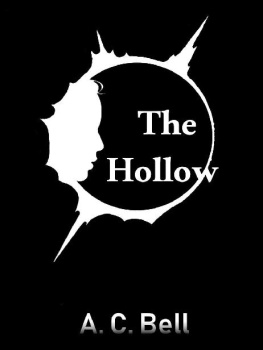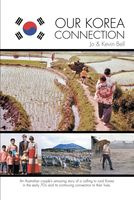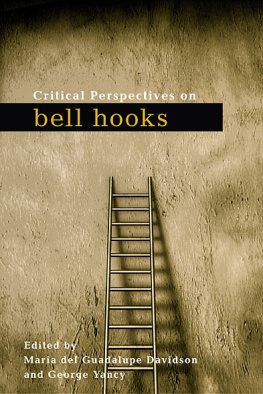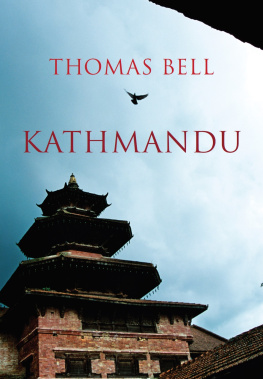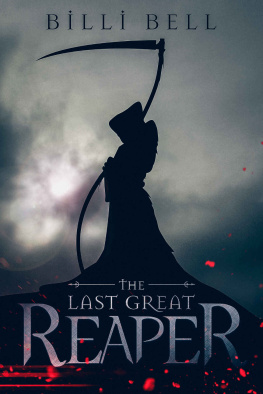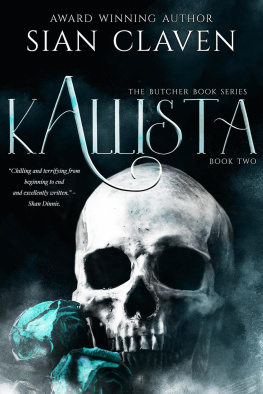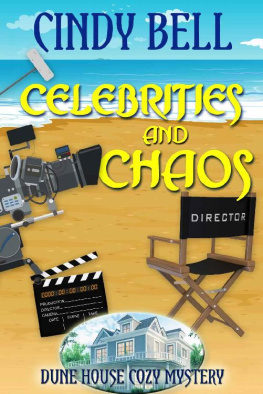Bell - Kallista
Here you can read online Bell - Kallista full text of the book (entire story) in english for free. Download pdf and epub, get meaning, cover and reviews about this ebook. year: 2019, publisher: Olympia Publishers, genre: Adventure. Description of the work, (preface) as well as reviews are available. Best literature library LitArk.com created for fans of good reading and offers a wide selection of genres:
Romance novel
Science fiction
Adventure
Detective
Science
History
Home and family
Prose
Art
Politics
Computer
Non-fiction
Religion
Business
Children
Humor
Choose a favorite category and find really read worthwhile books. Enjoy immersion in the world of imagination, feel the emotions of the characters or learn something new for yourself, make an fascinating discovery.
Kallista: summary, description and annotation
We offer to read an annotation, description, summary or preface (depends on what the author of the book "Kallista" wrote himself). If you haven't found the necessary information about the book — write in the comments, we will try to find it.
Bell: author's other books
Who wrote Kallista? Find out the surname, the name of the author of the book and a list of all author's works by series.
Kallista — read online for free the complete book (whole text) full work
Below is the text of the book, divided by pages. System saving the place of the last page read, allows you to conveniently read the book "Kallista" online for free, without having to search again every time where you left off. Put a bookmark, and you can go to the page where you finished reading at any time.
Font size:
Interval:
Bookmark:
About the Author
David Bell is a geologist, Fellow of an Oxford University college and married to an artist. He has seen service in the Western Pacific and carried out volcanological research in various parts of the world including Greenland, Iceland, Ascension Island, Sicily and Santorini where a chance discovery inspired him to write this story. Most of it was written in the house that he and his wife owned in southern France when time permitted between periods of renovation and the work of groups of artists preparing exhibitions.
Kallista
David Bell

Kallista
Olympia Publishers
London
www.olympiapublishers.com
OLYMPIA EBOOK EDITION
Copyright David Bell 2019
The right of David Bell to be identified as author of
this work has been asserted in accordance with sections 77 and 78 of the Copyright, Designs and Patents Act 1988.
All Rights Reserved
No reproduction, copy or transmission of this publication
may be made without written permission.
No paragraph of this publication may be reproduced,
copied or transmitted save with the written permission of the publisher, or in accordance with the provisions
of the Copyright Act 1956 (as amended).
Any person who commits any unauthorised act in relation to
this publication may be liable to criminal
prosecution and civil claims for damage.
A CIP catalogue record for this title is
available from the British Library.
This is a work of fiction.
Names, characters, places and incidents originate from the writers imagination. Any resemblance to actual persons, living or dead, is purely coincidental.
Olympia Publishers
60 Cannon Street
London
EC4N 6NP

Localities Numbered on the Map of the Voyages of the Davina
Name in the Text | Modern Name | |
Kallista | Santorini | |
Gubal | Byblos | |
Telchina | Rhodes | |
Tholos | Christiania Is | |
Kunisu | Knossos | |
Pelos Cape | Cape Matapan | |
Halaba | Aleppo | |
Hattusa | Bogazkale | |
Damas | Damascus | |
Tsudon | Sidon | |
Taphos | Cephalonia | |
Katane | Catania | |
Kharron | The Gironde | |
Crakluz | St Michaels Mount | |
Kanus | Kanub, Nile Delta | |
The Strait | Gibraltar | |
Isle of Slingers | Minorca | |
Standing Stones | Carnac | |
Alefisia | Messini | |
Isle of Bronzesmiths | Bay of Naples | |
Buning Mountain | Mount Etna |
Acknowledgments
Helen Ganly for her artistic flair; Sarah Gracie and Katie Hambrook for their valuable comments on, and criticisms of, the manuscript; Oxford Universitys Sackler Library with its essential treasures for authors seeking recondite information.
Foreword
This story tells of events imagined to have happened, and some that are known to have happened, over a period of about twelve years during the latest stage of what archaeologists call the Middle Bronze Age (MBAIIC). By this time advances in navigation and shipbuilding had enabled an extensive mercantile network to become established throughout the Mediterranean and bordering lands such as Egypt and Anatolia. As well as staples, sophisticated luxury goods were traded indicating high levels of technical and artistic skill in their manufacture and affluent and well-structured communities as their market. The so-called Minoan Civilisation of the Aegean provides examples of such settlements in the palaces of Knossos, Phaistos and Gournia on Crete and Old Akrotiri, a partially excavated port on the volcanic island of Santorini some one hundred kilometers north of Crete. Bronze was an essential metal and although its principal component, copper, was reasonably abundant in the Mediterranean, tin had to be imported from more distant sources. Recent isotopic analyses of bronze artefacts of this age indicate that one source was Britain.
At the end of this period, Minoan settlements show signs of a sudden and serious decline that has been attributed by some to the violent eruption of the Santorini volcano whose activity and products have been meticulously documented by recent research. Certainly Old Akrotiri was completely buried by pyroclastic deposits and there is evidence of tsunamis reaching Crete and other places. Shipping may have been destroyed and ash falls may have depleted crops and livestock, causing famine and social breakdown. Yet archaeology reveals that some life went on though not on Santorini and perhaps other powers seeing their chance to exploit a natural disaster, eventually became the new masters of the Aegean.
Some readers will detect a sense of odyssey in parts of this story and they have cause. I have quite shamelessly borrowed from, and even introduced, a blind poet and adapted some of his material in my own very different way. I hope he will forgive me. I am not the only guilty one.
KANESH
Sharesh sat up and listened. The wind had dropped. Water was still gurgling down the drain in the street outside but the rain had stopped lashing the walls of the house. He picked up a ragged cloak from the pile of old clothes he had been sleeping on and put it round his shoulders. Quietly he crept up the stone staircase, passed his parents room where they lay sleeping and made his way up the wooden stairs and out onto the roof. It was getting light, so he turned in the direction of the rising sun and bowed his head for a moment in the gesture of respect.
The roof was wet and his feet slid on damp mud, but the thick layers of leaves and reeds and red ash packed hard over the ceiling timbers had kept out the rain and the slope of the roof his mother had specially demanded led most of the water across the overhanging eaves and into the street. It would soon dry out when the sun came up. One day, Dareka had said, he was going to cover the roof with tiles just like the ones that Merida had ordered for the roof of his new house on the cliffs overlooking the Lagoon. The storm had wrecked the canopy of laths and reeds rigged up to give shade so there was a job to do later in the day, gathering what was needed for repairs. Some other boys would be going to the beach for the same reason. There would be a chance to swim, perhaps catch crayfish.
Now would be a good time to see if the storm had brought in any useful driftwood. He padded back downstairs to the ground floor, took a handful of olives from the jar next to the hearth and, slipping through a back window, dropped into the street. A second later, his dog Tika joined him. They trotted through the gardens on the edge of the town, heading away from the harbour and towards the beach below the Red Cliffs. Everybody knew that the bay on the other side of this point was a trap for flotsam when the spring winds blew onto this part of the coast and he wanted to be there first and get the best pieces. Small branches were good for firewood and some of the bigger ones could be used for joinery in the house or even sold to carpenters. Once he had found planks and splintered poles that must have come from a shipwreck. More like that would be very welcome.
Next pageFont size:
Interval:
Bookmark:
Similar books «Kallista»
Look at similar books to Kallista. We have selected literature similar in name and meaning in the hope of providing readers with more options to find new, interesting, not yet read works.
Discussion, reviews of the book Kallista and just readers' own opinions. Leave your comments, write what you think about the work, its meaning or the main characters. Specify what exactly you liked and what you didn't like, and why you think so.

